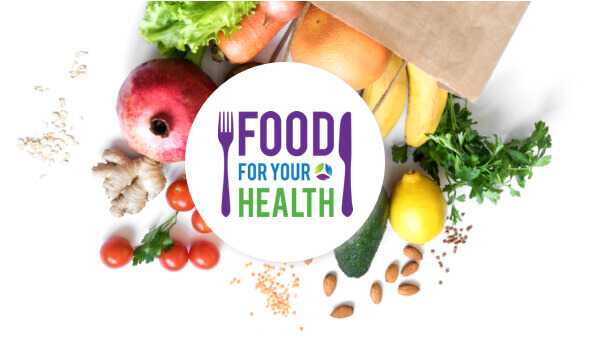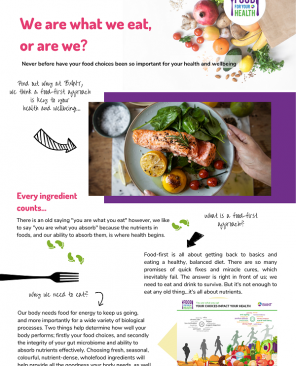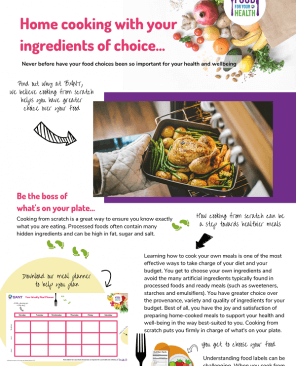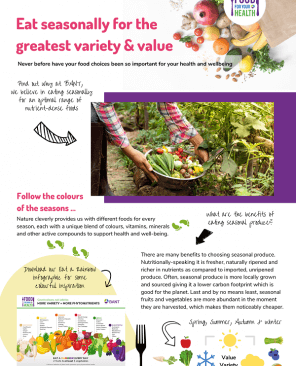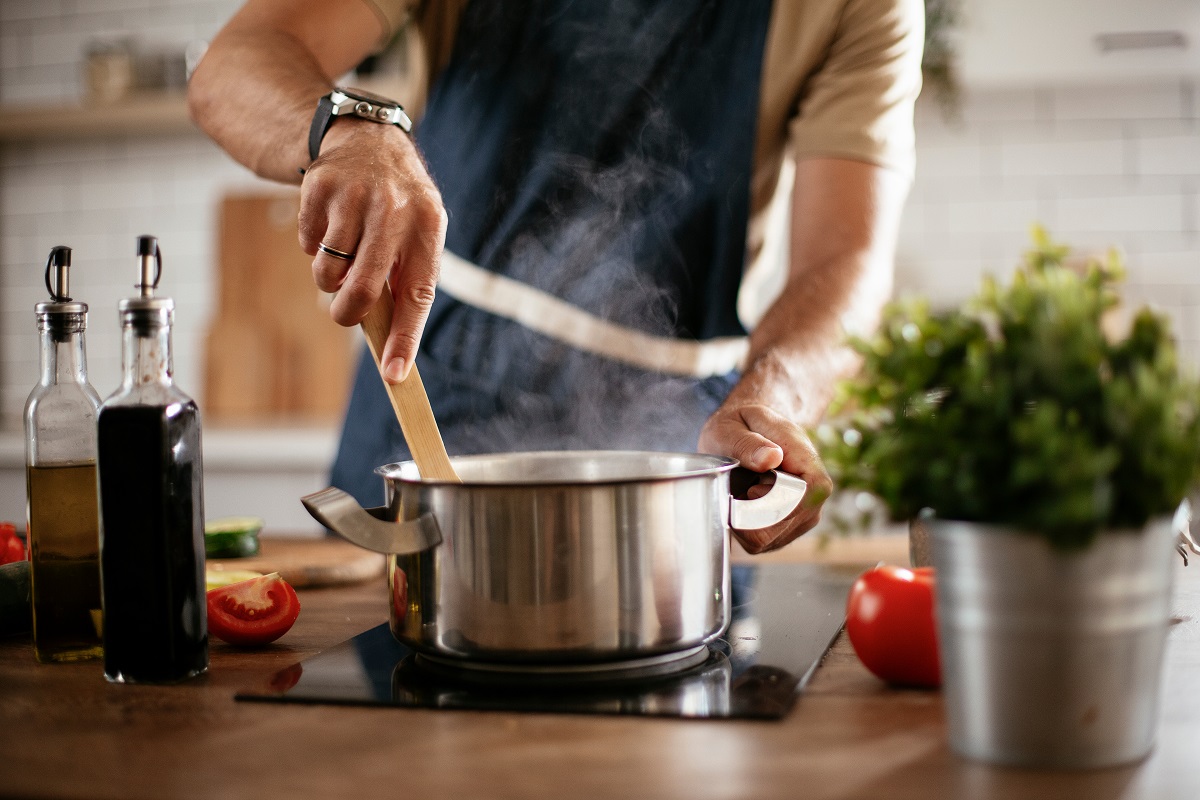
22 Aug 2022 Reviving the lost art of home-cooking to save our health
In a world where convenience, technology and delivery apps have taken over.
Cookery shows first appeared in the UK in 1930’s and pretty soon it gave birth to the concept of celebrity chefs and competitive cooking shows. Our appetite for these shows is no less today with over 30 million viewers tuning in to the nation’s top 10 foodie TV shows every week and past surveys showing Brits now spend more time consuming “food media” than cooking food for themselves. Back in 2016 the Huffington Post revealed “The average adult now spends five hours each week watching, reading, browsing and tagging food on social media, but just four hours whipping up their own meals” (1). Consider then, with the rise of food delivery apps, how much more time we likely spend online today looking at food, ordering food, and swiping left? Has social media and app technology rendered the art of home cooking distinct?
The joy of home-cooking: a passion for some, yet a mixture of fear and apathy for others. Our love of eating does not translate to a love of cooking for all of us. Over the years we have evolved to find increasingly innovative ways to produce food and feed ourselves, from designing irrigation systems to water our crops, to the birth of food processing to help preserve and prolong the life of our ingredients through drying, freezing, pickling, canning, curing, salting and more besides. Alongside this, we have learnt how to prepare and cook food, and this information has been passed down from one generation to the next. How then, with all the modern technology and gadgets to help us in the kitchen have we arrived at generation can’t cook – won’t cook? No doubt the idea for the identically named TV show was considered tongue-in-cheek when first floated but a 2017 YouGov survey found that 9% of Brits hardly ever cook for themselves from fresh ingredients, while 4% never do. Instead, they’re reliant on ready-meals and pre-prepared foods (2). Encouragingly, one, in five (19%) of respondents claimed to ‘almost always cook from scratch’ but in the five years since this survey much has changed, not least the way we access our food. Home Delivery Apps growth in the UK has grown 40.5% per year on average between 2017 and 2022, with a whopping 47.2% growth in 2022 year to date. The UK market alone is said to be worth $3.7bn. All of which makes it easier than ever before to access ultra-processed convenience foods at the click of a button (3). Why cook if you don’t need to?
One compelling reason is health. We know that eating a healthy, balanced diet supports good health. Preparing foods from fresh is the front line of healthy eating. In contrast, there is overwhelming evidence that heavily manufactured, ultra-processed, convenience and fast foods and drinks all have a negative association with health. This is due to them typically containing high fat, salt, and sugar contents (HFSS). The YouGov survey suggested that non-scratch cooks tend to have fewer concerns about food than those who make their own meals. It found they were less likely to worry about things such as sugar levels (28% vs. 47%), freshness (26% vs. 61%), and fat content (24% vs. 42%) which is worrying in the context of health. This gives rise to a double negative with those people who cook less, also being less interested in the nutritional content and health benefits of the foods they consume, making them more likely to consume unhealthful foods.
With health stakes so high in our post-pandemic culture, an obesity epidemic that shows no sign of slowing and a cost-of-living crisis which threatens to get worse before it gets better, can home-cooking be elevated back to its previous position as a ‘fundamental life skill’ and help save the day?
There are certainly plenty of benefits. When you can rustle up a meal from fresh ingredients you have ultimate autonomy over your diet. You can shop to your personal budget, choose which ingredients go into those meals, add in additional flavour with herbs and spices, choose how to cook ingredients for best effect, batch cook and apportion to your needs, and serve for most appetite-appeal. Can a luke-warm home delivery or takeaway tick those same boxes?
Let’s take each of these in turn:
Food Freedom
Being able to cook-from-scratch gives you more food freedom and autonomy as you can eat what you like, how you like. There is possibly no other skill that will serve you better throughout life. We need only look at the animal kingdom to understand that food is a matter of survival, and no other species on earth is unable to feed itself adequately. Teaching essential food, nutrition, and cooking skills in schools forms part of the 2021 National Food Strategy agenda in which they recommend launching a new “Eat and Learn” initiative for schools (4). Upskilling individuals to be more confident in the kitchen will hopefully make cooking meals more enjoyable and less daunting. As the old proverb says “If you give a man a fish, you feed him for a day. If you teach a man to fish, you feed him for a lifetime.” Teach a person to cook and you empower them for life.
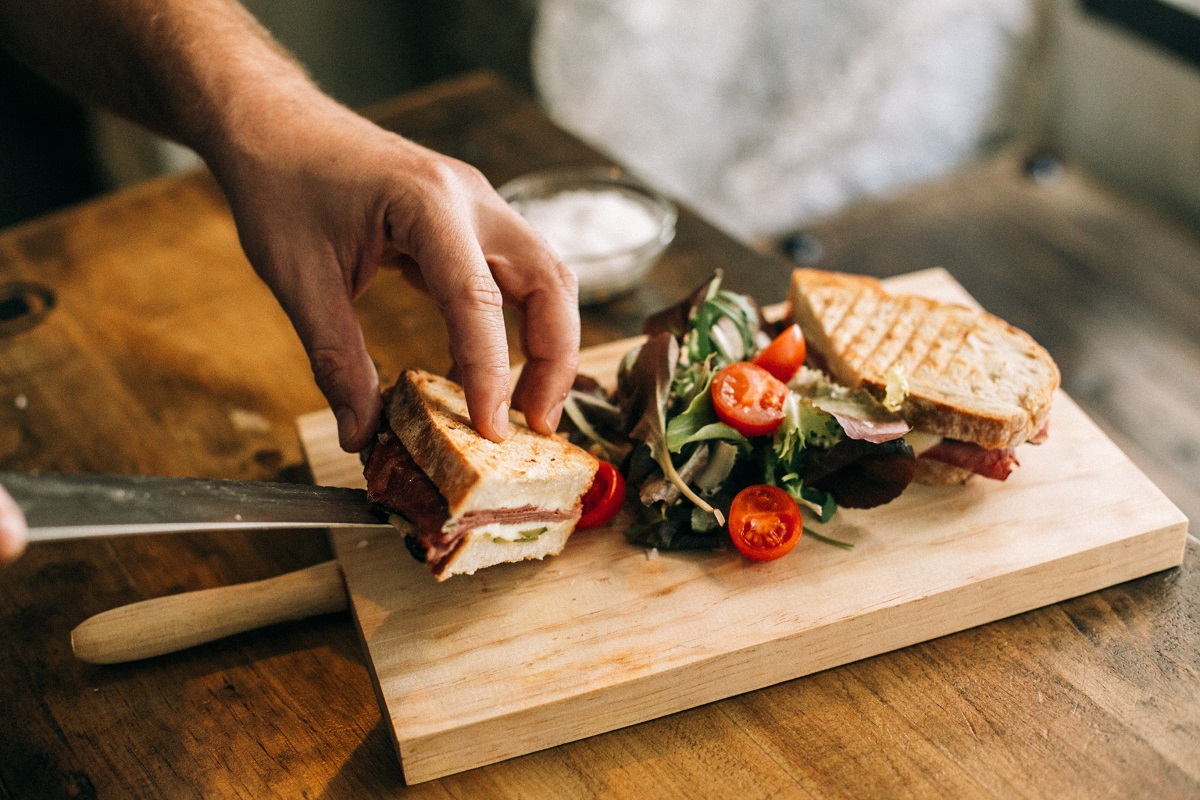
Shop to a budget
With the cost-of-living crisis worsening more households than ever are shopping to a tight budget. The average UK food bill has risen by £454 a year, many people are needing to find ways to cut back on expenses and shop differently (5). In May, data from The Food Foundation showed 7.3 million adults, and 2.6 million children, now live in households that had gone without food or could not physically get it in the past month. That compares with 4.7 million adults in January, a rise of nearly 60% (6). The rise in energy bills, petrol prices and background inflation, as well as the soaring cost of food has created an unprecedented crisis where individuals are actively skipping meals, or eating smaller portions to make food stretch further, or going hungry because they couldn’t afford or get access to food. The problems faced today are bigger than ‘just cooking-from-scratch’ and we cannot turn a blind eye to the difficulties faced. Do the best you and your wallet can. Developing strategies to maximise your spend by allocating a fixed budget, meal planning, writing a shopping list, and prioritising staple ingredients that can bulk out multiple meals can be helpful. You can also plan when to shop by finding out when your local supermarket typically discounts produce (most have a specific day of the week, or time of day). Your budget may also help define the provenance, variety, and quality of ingredients for cooking, all of which is relatively unknown with ultra-processed foods. Storing your ingredients correctly also ensures your food budget goes further and that no items go to waste.
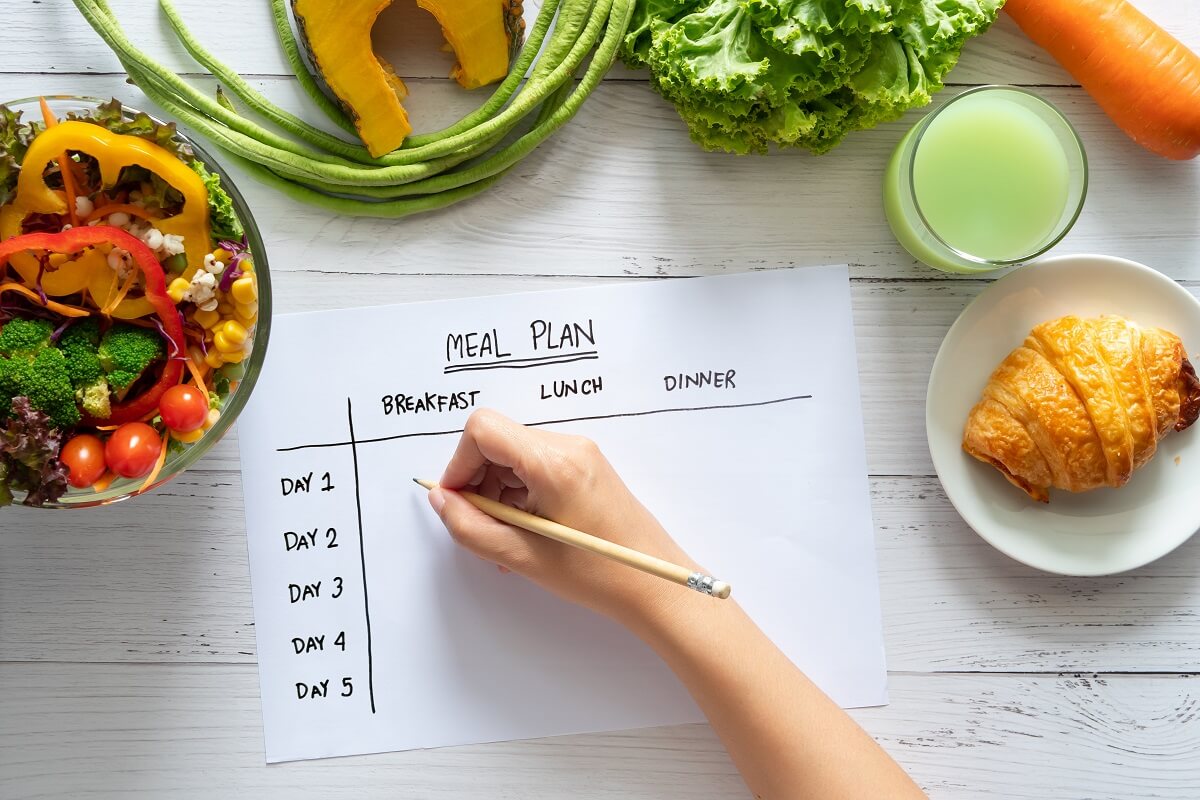
Choose your own ingredients
With ultra-processed foods it is often impossible to know what you are eating. Over the years there have been many under-cover and investigative pieces covering topics such as the burger with a total of 54 ingredients, and the high-street coffee shops selling festive beverages with 20+ teaspoons of sugar in each. As far back as 2004, American filmmaker Morgan Spurlock starred in and produced the documentary ‘Super Size Me’ to chart the effects of eating three McDonalds meals per day, for thirty days. He averaged 5000 calories per day, gained 11kg, suffered multiple ill-effects and it took him over fourteen months to lose the weight gained (6). The point being that it is increasingly challenging to determine the ingredients in many foods consumed today but, invariably there are more than you would use if you made the same item yourself, and those extra ingredients are likely to be detrimental to your health.
Cooking-from-scratch gives you the ability to choose your own ingredients and build your meals yourself. You have more flexibility to choose from seasonal ingredients (often cheaper) when food is ripest and most nutrient-rich, local ingredients with a lower transit footprint (such as from community allotments, local farms etc), frozen ingredients, and other minimally processed ingredients. It can also be safer for individuals with food allergies and intolerances as many ultra-processed foods contain allergens amongst their many ingredients. If we are what we eat, isn’t it better to know exactly what you’re eating?
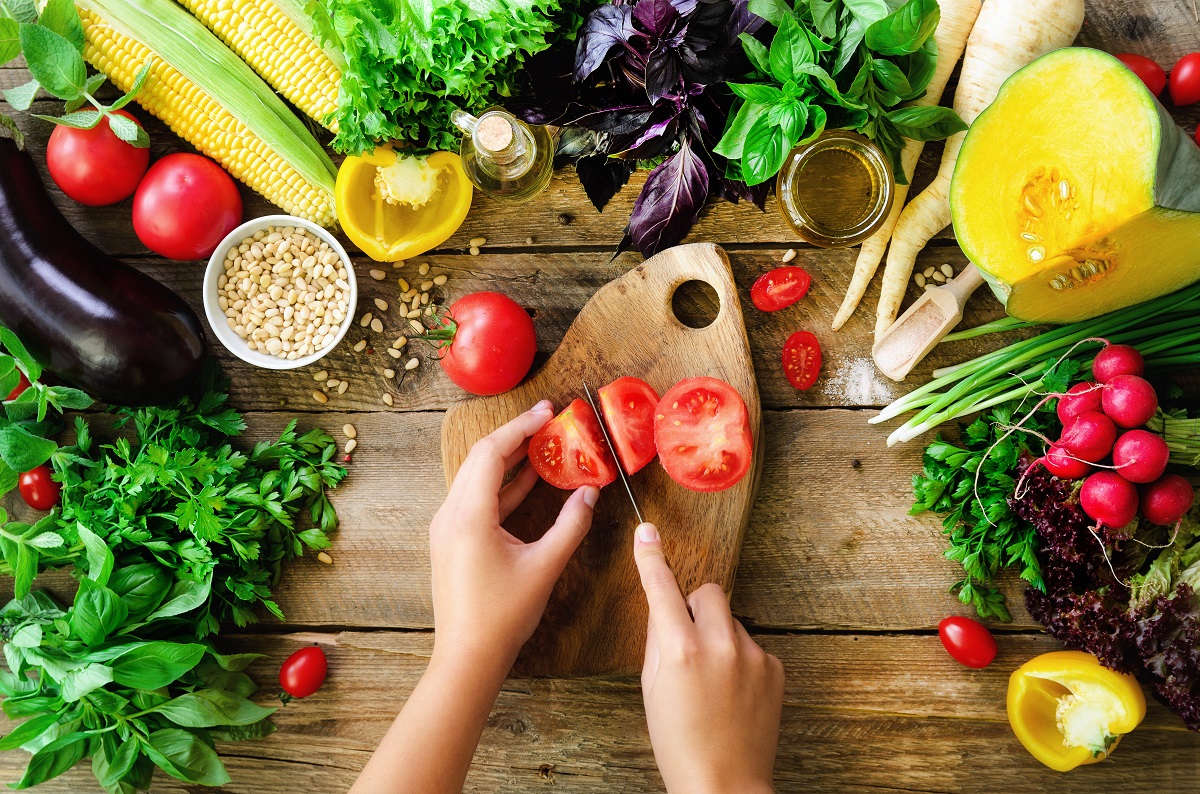
Add in flavour
With so many ways to flavour meals, cooking-from-scratch can open infinite possibilities and help you discover flavours you never knew you liked. From zesting in citrus fruits, adding in freshly chopped herbs or layering up the flavours with a mixture of spices, cooking becomes personal to your palate. This is just as true with drinks be it flavouring water with berries, lemon, lime, cucumber, and mint leaves or creating flavourful smoothies and juices with ginger, cinnamon, cacao, curcumin. The good news is that these all count as plant foods and help towards your recommended daily intake. These ingredients are also favoured by our gut microbiome, helping to support health and wellbeing.
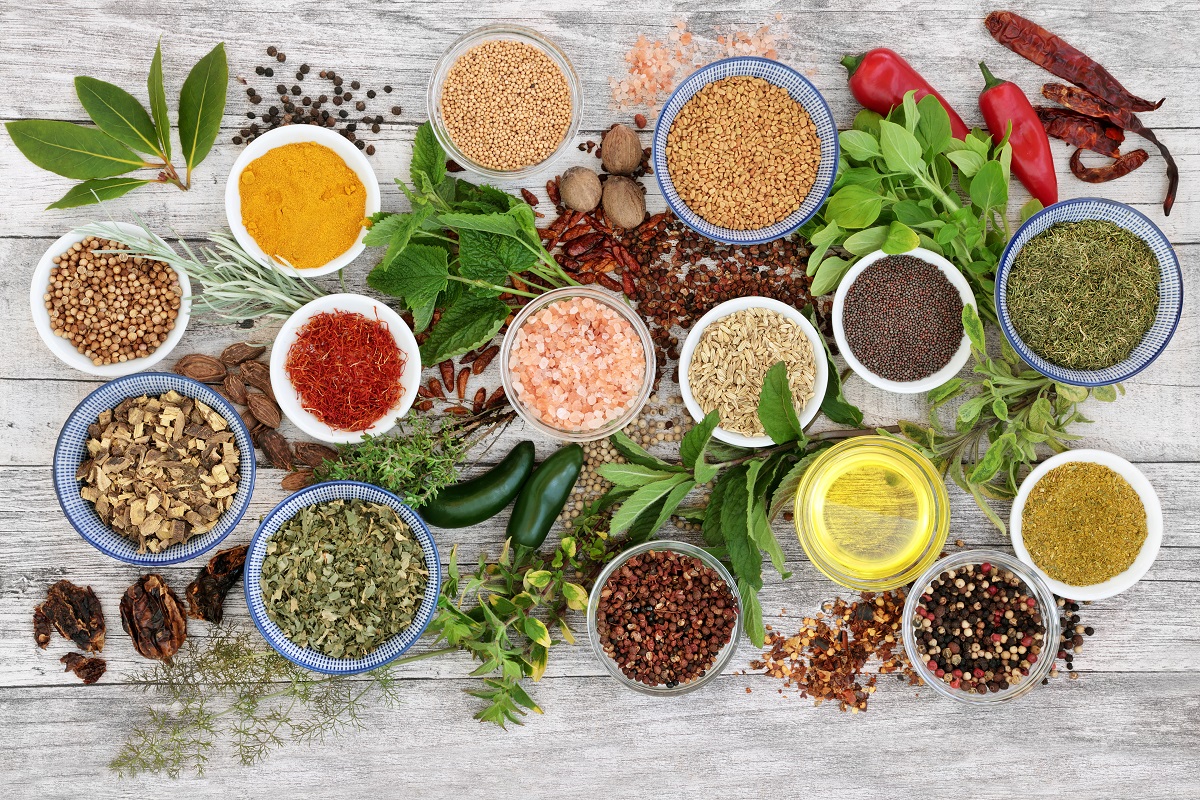
Cook as you can
Cooking can be as simple, or as complicated, as you choose. If you’re not confident in the kitchen then start with a couple of simple dishes, based on a few fresh ingredients, and practise. This could be an all-in-one soup or casserole, or perhaps a more traditional meat or fish and three vegetables dish. Whatever your kitchen credentials if you can wash and chop then you’re halfway there. Think salads or vegetable stir fry’s. Find the methods that works best for you and your equipment. Stove top pans and woks can help create speedy stir fry’s. Steamers can help you cook multiple ingredients together. Oven dishes often lend themselves to an all-in-one meal. Slow cookers are typically low-energy and economical. Pressure cookers can half the cooking time of many ingredients. Dry-fryers are quicker to heat then ovens and very versatile. Whatever you have in your kitchen, make it work for you so that cooking can also be quick and convenient. Lack of time is the most common excuse for non-scratch cooks but plenty of healthy meals can be prepared in under 10 minutes.
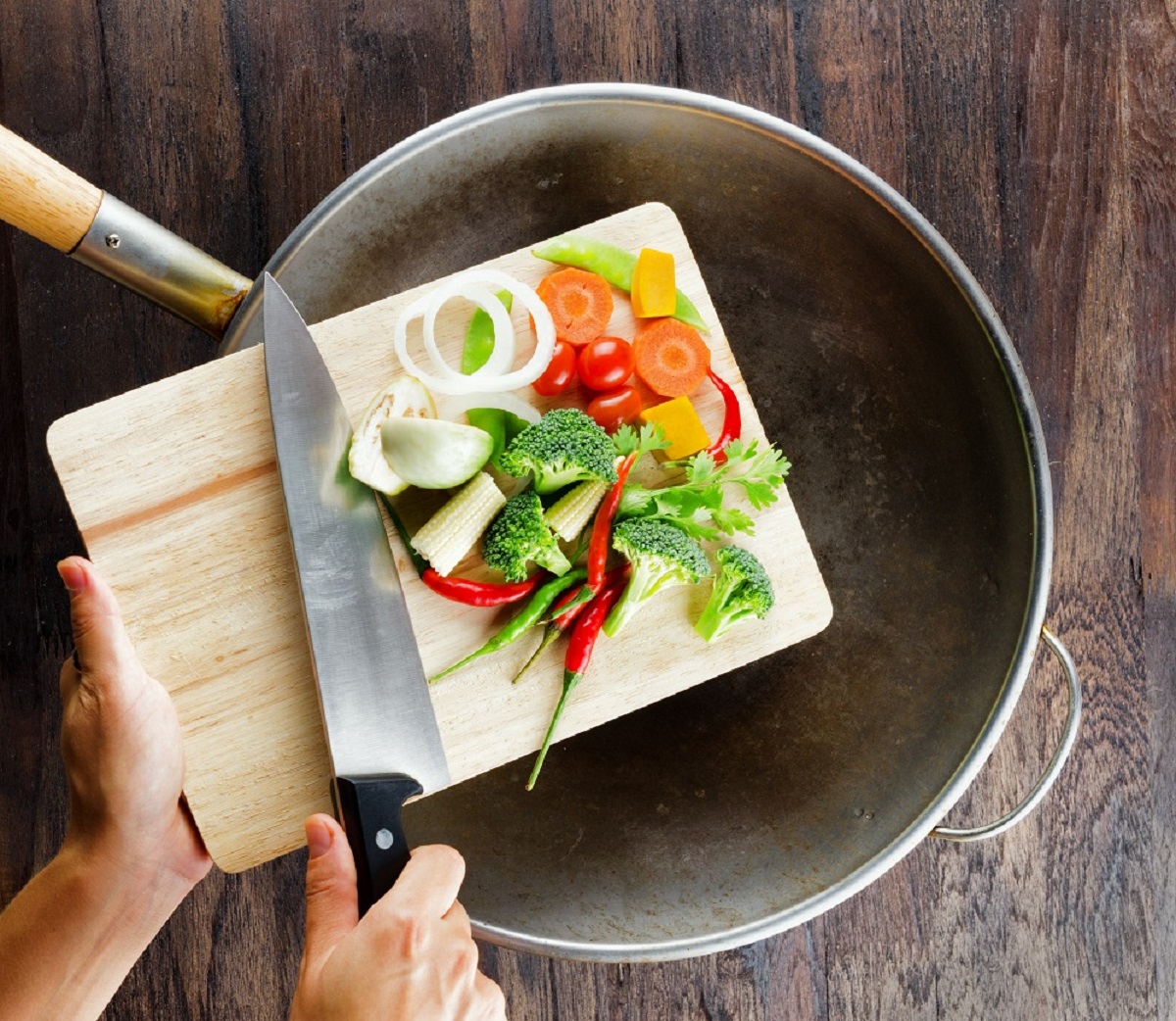
Batch cook & portion size
Cooking doesn’t have to be an everyday activity. Many people find it beneficial to batch-cook once or twice a week, portion and freeze meals. A little bit of planning can mean you have meals ready for when you need them, perfectly portioned to you, helping to also cut down on any food waste. This also ticks the health box versus home delivery meals which often provide more calories than needed, either in pre-determined portion sizes or by encouraging you to size-up, all of which can lead to over-indulging.
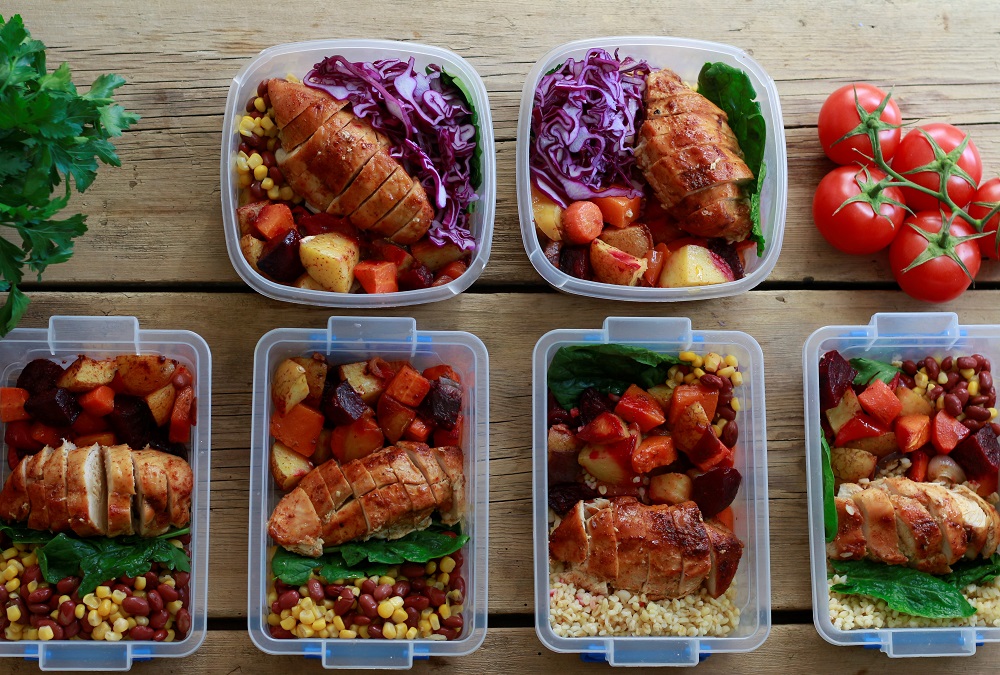
Appetite appeal and digestion
It is often said we eat with our eyes. Our appetite is triggered by the sight and smell of foods both of which are activated whilst cooking-from-scratch. These sensory cues also alert our digestive system to release enzymes so that it is ready to receive food and begin the process of digestion. When food is delivered and consumed without this preparative stage, the digestive system is taken by surprise and is less able to process the high fat, salt and sugar content of ultra-processed foods as efficiently. We also tend to eat more slowly when food is plated. This helps regulate our hunger and satiety cues, stopping us from over-eating. Fast-food is exactly what it says on the tin. Made fast, served fast, and eaten fast. The result being that it doesn’t always fill you up adequately despite the high calorie content. Social media wouldn’t be so popular if the food photography shown was anything less than appetising. It is hard to conceive that fast-food packaging makes any meal as eye-watering.
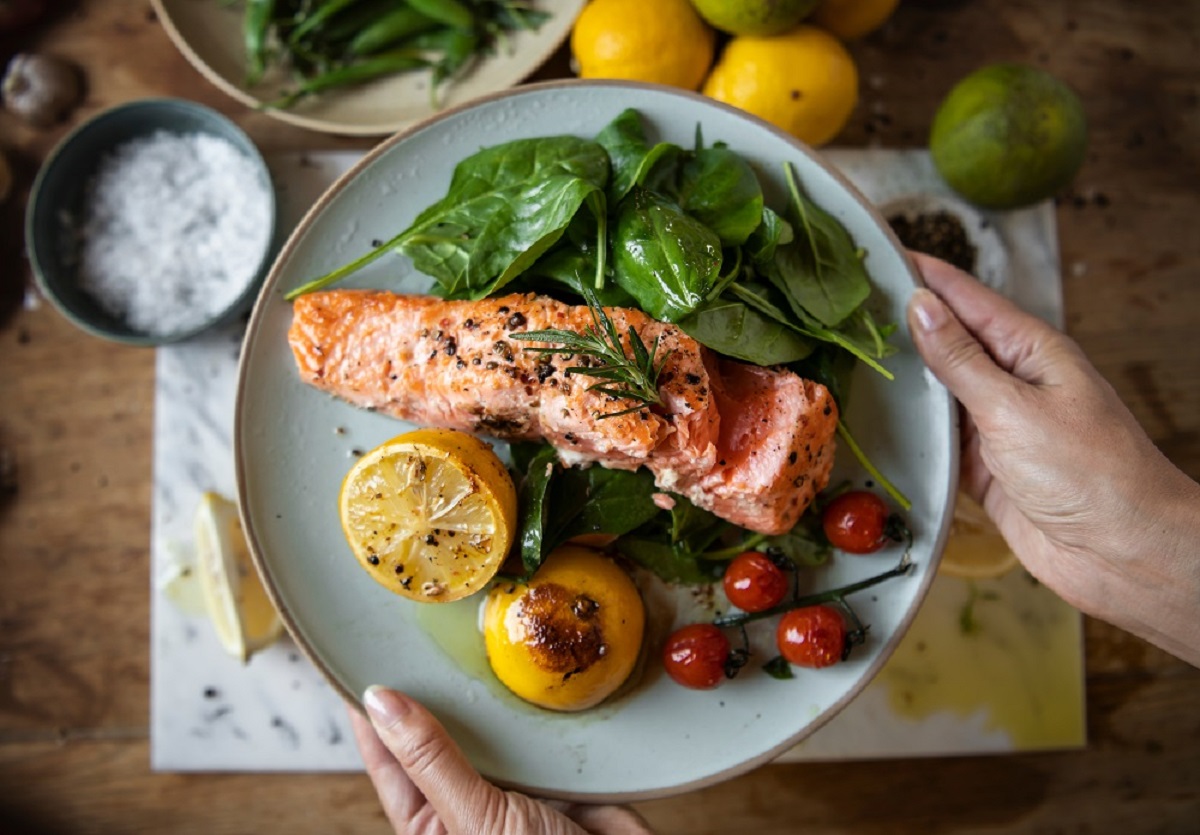
Cooking-from-scratch is perhaps one of the most important areas for upskilling individuals and households if we want to better support the health of the nation. In February 2021, BANT launched it’s Food for your Health Campaign to promote healthy food choices and encourage a return to scratch-cooking as support for general health and well-being. We have created a dazzling array of resources to get you thinking about food, to help you meal plan, and provide some healthy balanced recipes. Our diets have become overly reliant upon ultra-processed junk foods which are making us sick. If you want to gain greater control over your health, you may need to start by gaining greater control over your cooking habits. For more personalised recommendations and support Find a Practitioner at www.bant.org.uk
Author: Claire Sambolino MSc, Registered Nutritional Therapy Practitioner, BANT Communications Manager.
References:
- https://www.huffingtonpost.co.uk/entry/we-spend-more-time-watching-food-shows-than-cookin_uk_57e3d141e4b004d4d86237fd
- https://yougov.co.uk/topics/politics/articles-reports/2017/09/14/one-eight-brits-avoid-cooking-scratch
- https://www.ibisworld.com/united-kingdom/market-size/online-food-ordering-delivery-platforms/#:~:text=past%205%20years%3F-,The%20market%20size%20of%20the%20Online%20Food%20Ordering%20%26%20Delivery%20Platforms,average%20between%202017%20and%202022.
- https://www.nationalfoodstrategy.org/
- https://www.theguardian.com/tv-and-radio/2022/jul/23/i-cant-afford-what-i-used-to-how-the-cost-of-living-has-changed-viewing-habits#:~:text=The%20UK%20inflation%20rate,One%20area%20includes%20streaming%20services.
- https://foodfoundation.org.uk/press-release/millions-adults-missing-meals-cost-living-crisis-bites
- https://en.wikipedia.org/wiki/Super_Size_Me
NOTES TO EDITORS:
The British Association for Nutrition and Lifestyle Medicine (BANT) acts as a professional body for Registered Nutritional Therapy Practitioners in one-to-one clinical practice and as a self-regulator for BANT Registered Nutritionists®. BANT oversees the activities, training, and Continuing Professional Development (CPD) of its practitioners and has a governing council, who may be non-members but whose professional experience lies in the medical, scientific or educational area of nutritional science.
Registered Nutritional Therapists are regulated by the Complementary and Natural Healthcare Council (CNHC) that holds an Accredited Voluntary Register (AVR) for the Professional Standards Authority for Health and Social Care (PSA). A report by the Royal Society for Public Health and the Professional Standards Agency made a key recommendation that AVR practitioners have the authority to make direct NHS referrals, in appropriate cases, to ease the administrative burden on GP surgeries. BANT Nutrition Practitioners are the key workforce asset to harness 21st century lifestyle medicine to tackle the rising tide of stress-related fatigue, obesity, Type 2 Diabetes, dementia and other chronic diseases.
To find a BANT Nutrition Practitioner, please click here
BANT WELLBEING GUIDELINES:
The BANT Wellbeing Guidelines are specifically designed to provide clear, easy to understand general information for healthy diet and lifestyle when personalised advice is not available.
BANT launched its “Food for your Health” Campaign in February 2021 to provide open-access resources to help guide the public towards healthier food choices in prevention for diet-induced disease. Download a wide range of food and lifestyle guides, recipes, infographics, planning tools and fact sheets and start making healthy choices today.
